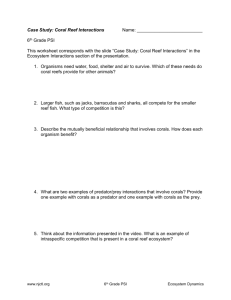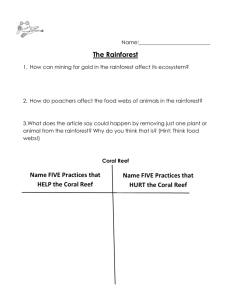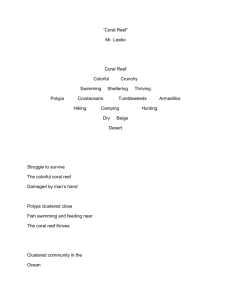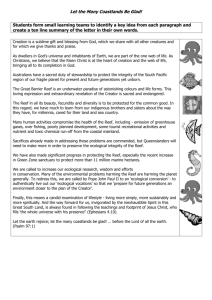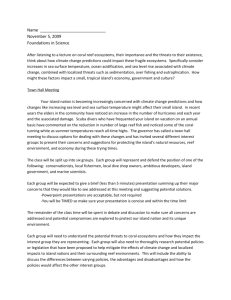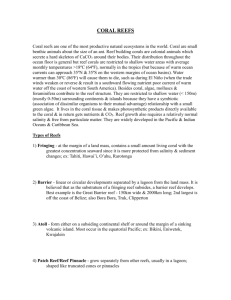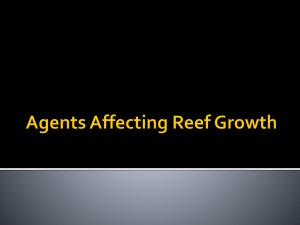Exploitation and Management of a Coral Reef Ecosystem
advertisement
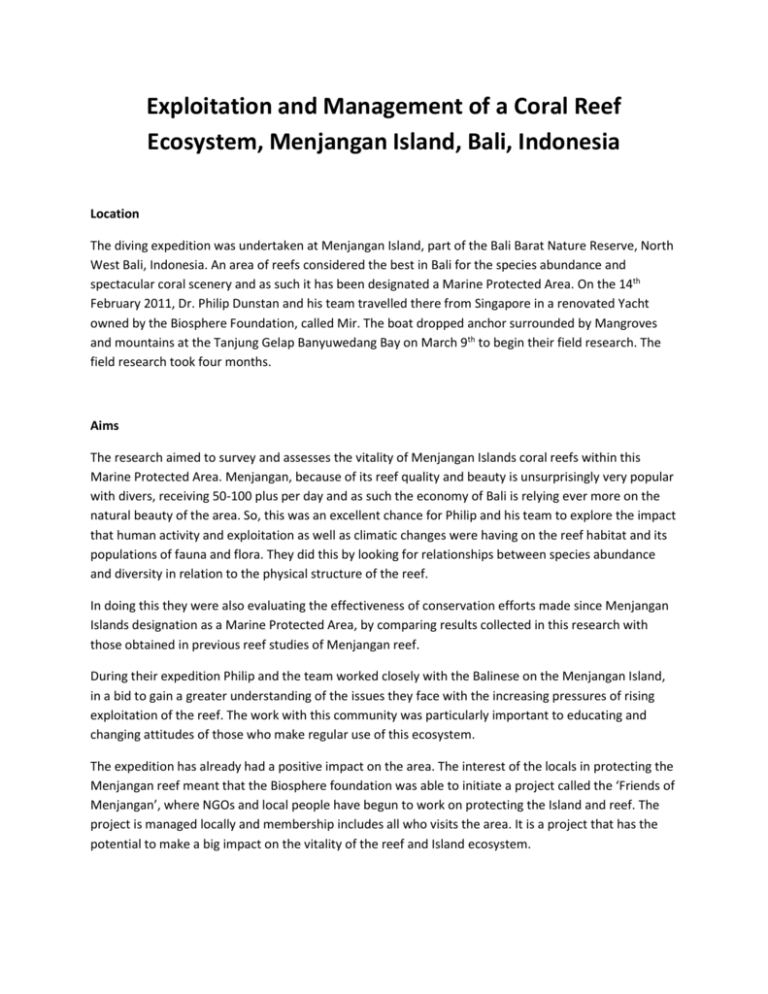
Exploitation and Management of a Coral Reef Ecosystem, Menjangan Island, Bali, Indonesia Location The diving expedition was undertaken at Menjangan Island, part of the Bali Barat Nature Reserve, North West Bali, Indonesia. An area of reefs considered the best in Bali for the species abundance and spectacular coral scenery and as such it has been designated a Marine Protected Area. On the 14th February 2011, Dr. Philip Dunstan and his team travelled there from Singapore in a renovated Yacht owned by the Biosphere Foundation, called Mir. The boat dropped anchor surrounded by Mangroves and mountains at the Tanjung Gelap Banyuwedang Bay on March 9th to begin their field research. The field research took four months. Aims The research aimed to survey and assesses the vitality of Menjangan Islands coral reefs within this Marine Protected Area. Menjangan, because of its reef quality and beauty is unsurprisingly very popular with divers, receiving 50-100 plus per day and as such the economy of Bali is relying ever more on the natural beauty of the area. So, this was an excellent chance for Philip and his team to explore the impact that human activity and exploitation as well as climatic changes were having on the reef habitat and its populations of fauna and flora. They did this by looking for relationships between species abundance and diversity in relation to the physical structure of the reef. In doing this they were also evaluating the effectiveness of conservation efforts made since Menjangan Islands designation as a Marine Protected Area, by comparing results collected in this research with those obtained in previous reef studies of Menjangan reef. During their expedition Philip and the team worked closely with the Balinese on the Menjangan Island, in a bid to gain a greater understanding of the issues they face with the increasing pressures of rising exploitation of the reef. The work with this community was particularly important to educating and changing attitudes of those who make regular use of this ecosystem. The expedition has already had a positive impact on the area. The interest of the locals in protecting the Menjangan reef meant that the Biosphere foundation was able to initiate a project called the ‘Friends of Menjangan’, where NGOs and local people have begun to work on protecting the Island and reef. The project is managed locally and membership includes all who visits the area. It is a project that has the potential to make a big impact on the vitality of the reef and Island ecosystem. Key words: Abundance Coral bleaching Transect Rugosity Exploitation Management Research techniques: Data collection in the field at 11 sites along two transects at each site. Observation of species abundance Assessment of the reef; its health, rugosity and level of damage. Measurements of sea temperature and pressure. Work with the local Balinese community and the ‘Friends of Menjangan’ to protect the island and reef ecosystem. Key topics and themes Human and Physical Impact and damage to the reef ecosystem. Management of fragile coral reef ecosystem to protect the area whilst still enabling it to benefit the local and Balinese economy. Mitigation and work with the community to make educate and sustainable use of this environment. Key questions How are natural changes and humans impacting upon the diversity and abundance of flora and fauna in the reef ecosystem? Is the Island and reef being managed sustainably? Do further studies and actions need to be put in place to ensure the Menjangan’s continued prosperity and protection?
